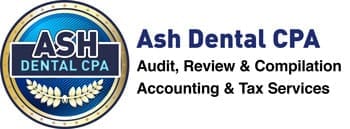Tax Planning For Dentists

Tax Planning For Dentists
Tax planning for dentists can be viewed as a means to reduce the tax liability within the laws. It’s important to differentiate the term from tax avoidance or tax evasion. When done properly, tax planning can bring long-term financial gains.
Tax planning is important for dentists like any other professionals. Taxes are a permanent part of your professional and personal lives. As a dentist, you can consult a professional such as a dental CPA to reduce the liability.
What is Tax Planning for Dentists?
Tax planning refers to a strategy or plan that is devised to minimize tax liability by staying compliant with the tax laws. Tax planning for dentists covers different personal and business financial aspects.
Efficient tax planning reduces the tax burden. Tax planning uses the deductions and tax credits to their maximum use. It also devises plans such as deferred income and early expense payments etc.
Why Dentists need professional tax planning?
Tax planning for dentists is devised to save money. It directly affects your wealth planning and retirement planning. Simply put any savings from taxes would go towards investments for long-term gains. These long-term investments can be retirement plans, stocks, real estate investments, or fixed-income instruments.
Dentists also often operate the dental practices as sole proprietors. It means careful tax planning for the business and personal income taxes become more important. Reducing the tax liability in such cases is a complex task. Thus, dentists should plan early for taxes to gain long-term benefits.
Savings for the Long-Term
That’s the prime objective of tax planning, to save money. Tax filing is a permanent obligation for dentists that could stretch to the retirement life as well. Thus, if planned well, tax planning can yield long-term savings.
Savings through tax planning for dentists offers multi-facet benefits. The more you save from taxes more you can put that money into investments. Invested money yields manifolds returns in the long-term. However, it’s important to distinguish between tax reduction and tax avoidance.
As a dentist, you can consult a professional such as a dental CPA to advise you on the long-term saving plans with tax planning strategies.
Retirement Planning
Retirement planning a key goal for any professional. Dentists can also take advantage of tax planning to maximize their retirement planning benefits.
One way of improving retirement planning returns is through maximizing the contributions to the retirement plans. You can choose the right retirement plan to maximize savings. Although you cannot avoid taxes on retirement plan contributions. Tax liability can be deferred and lowered through retirement plan contributions.
The other way is to maximize the savings through tax liability reductions. Any savings can go into investments such as fixed-income instruments like bonds.
Improved Personal Finances
Tax planning for dentists eventually affects personal finances as well. Particularly, for a dental practice running as a sole proprietorship. In many cases, business income is considered personal income. Hence, effective tax planning reduces the tax liability for your dental practice as well as personal income.
Effective tax planning can also help you grow personal wealth in the long run. You can devise plans such as financing a child’s education through business income to reduce the tax liability. It means you can save on some of the personal expenses and stay compliant with the tax laws as well.
Compliance with the Laws
One of the key purposes of tax planning for dentists is compliance with regulatory laws. Tax laws are changing with continuous amendments and provisions. Thus, keeping up with the tax law changes becomes a complex task. Effective tax planning helps a dentist stay compliant with these regulatory changes.
At the same time, you can take full advantage of tax provisions and temporary reliefs offered by the IRS. For example, in the recent Covid-19 economic hardships, the IRS allowed several tax provisions such as PPP loan forgiveness.
Improved Financial Planning
Financial planning is a strategic task that a business performs for long-term success. Tax planning for dentists is also a long-term strategic task. Thus, we can relate the effective implementation of tax planning as an integral part of the financial planning process.
For dentists, the tax expense can be one of the largest business expenses. Hence, planning to reduce the tax bill would affect every aspect of your financial life. As financial plans can be divided into short-term and long-term, tax planning can also be matched with these financial plans to achieve effective results.
Learn more about Tax Planning For Dentists with Ash Dental CPA. Call (508) 458-6789 or request a call online.
